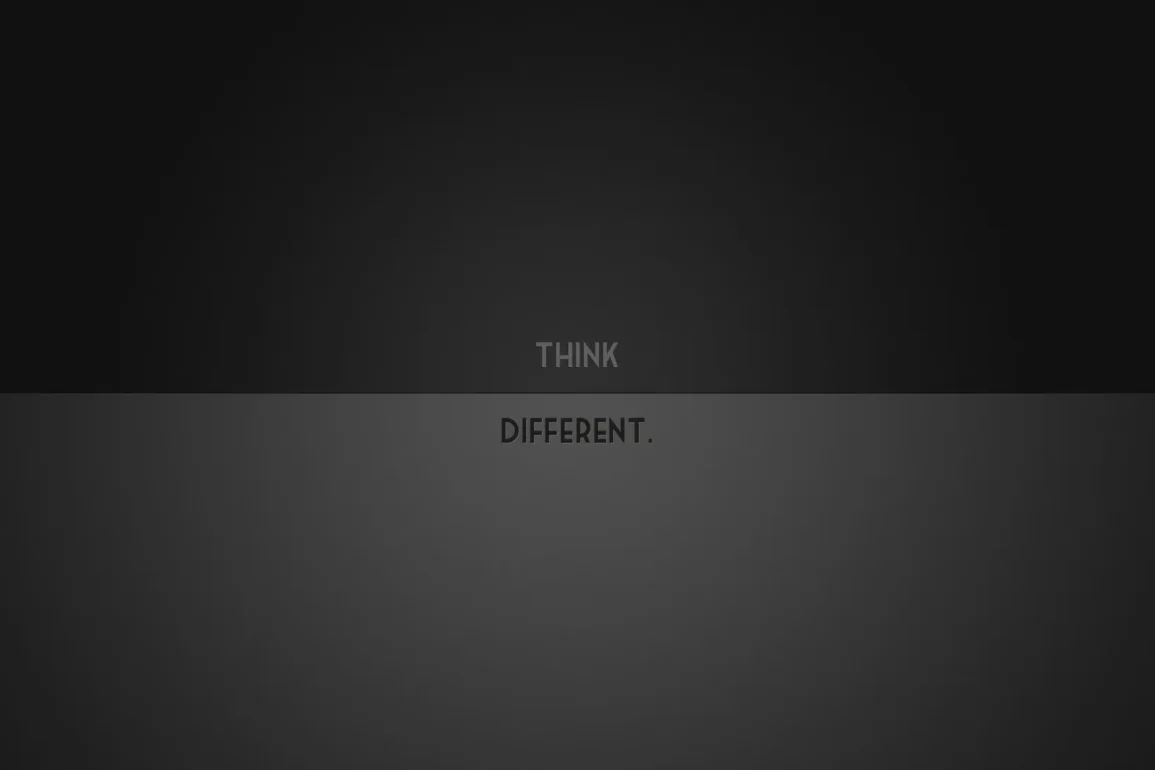Situational Interview Questions for Managers: Examples
Understanding the Situation
When I first started interviewing for management positions, I quickly realized that situational interview questions were a huge part of the process. These questions are designed to assess how a candidate would react to different workplace scenarios. One of the questions that stuck with me was, “Describe a situation where you had to deal with a difficult team member.” Honestly, it got me thinking about my first experience as a team lead—he was tough. I fumbled initially, but over time, I learned the importance of clear communication.
- How do you motivate your team? – A fantastic question that can reveal much about one’s leadership style.
- What would you do if your team misses a deadline? – This challenges candidates to think critically about accountability and solutions.
- Can you share an example of a conflict you’ve resolved? – This shows how a candidate handles disputes and their approach to problem-solving.
Learning from Experience
One time, I was asked, “What would you do if you made a mistake no one noticed?” It felt like a trap at first, but it opened up a good discussion on integrity. I shared how I once overlooked a significant budgeting error and owned up to it, even though it was nerve-wracking. Turns out that honesty can build trust within a team, which is so vital!
Another favorite of mine, which I wish I had prepared for was, “Describe how you handle stress.” I totally blanked. Now, I think I’d tell them about how I step back, breathe, and prioritize my tasks. Everyone has a different way to deal with pressure, but being able to articulate yours really makes a difference.
Ultimately, mastering these situational interview questions is like gearing up for a game—practice makes you prepared for the unexpected. And trust me, the more you rehearse, the more confident you’ll feel when those questions come knocking at your interview door.
Common Situational Interview Questions for Leadership Roles
If you’re aiming for a leadership role, facing situational interview questions can feel like a true test. These questions help hiring managers see how you’d respond under specific circumstances. They’ve got a knack for getting to the core of your leadership style and abilities.
- Handling Unmotivated Teams – “Name a time when you had an unmotivated team who were behind schedule. What was your leadership style? And how did you inspire and encourage them to work towards completing a project within the deadline?” This question seeks to understand your motivational strategies and how you handle the aftermath of a team falling behind.
- Ensuring Task Completion – “How do you make sure projects and tasks stay on schedule?” This one’s all about your organizational skills and methods for keeping a team in check, which can make or break project success.
- Conflict Management – “How do you handle disagreements on your team?” This question dives into your conflict resolution skills and how you foster a collaborative environment, something critical for any leader.
When preparing, consider using the STAR method (Situation, Task, Action, Result) to craft your answers. This method frames your experiences in a way that’s easy to follow and showcases your thought process.
Also, think deeply about your leadership skills. What are the most useful ones you possess? Answering questions like these can reveal your self-awareness and how you view your own effectiveness.
And don’t forget about adaptability! Questions about tailoring your leadership style to fit different situations or handling underperformance in teams are rich with insight. They help officials gauge how flexible and strategic you can be in tricky scenarios.
These situational interview questions provide a well of insight into your problem-solving abilities and how you think strategically. Practice makes perfect, so refining your stories related to these quesions could be a real game-changer in your interview prep!
How to Answer Situational Interview Questions for Managerial Roles
Alright, let’s chat about tackling those tricky situational interview questions that pop up in managerial role interviews. Trust me, they can feel like a minefield, but with the right strategies up your sleeve, you’ll navigate through like a pro.
Understand the STAR Method
First off, you should get cozy with the STAR method. It’s a super handy framework that stands for Situation, Task, Action, and Result. When a situational question comes along, break it down by describing the situation, what task you had, the actions you took, and what came out of it. This gives a clear, logical structure to your answers.
Reflect on Your Experiences
Now, are you sitting down? This part’s key—reflect on your experiences. Jot down specific challenges or achievements you’ve faced in the workplace. It helps to have those real-life stories at hand, ready to share when the right question pops up. One time, I had to manage a team under a tight deadline; having that experience in the back of my mind made my response so much richer!
Stay Solution-Focused
Always stay solution-focused when answering. Employers want to know how you tackle problems, not just that you have faced them. Think about how you solved an issue, like how I had a project go off the rails once but managed to steer it back with some creative brainstorming.
Communicate Soft Skills
And speaking of problem-solving, don’t underestimate the power of soft skills. Employers love to see fuzziness like empathy and communication in your responses. Talk about how you handled a conflict and kept your team aligned. One example could be how I facilitated a team meeting that turned a tense situation into collaboration. It showed my ability to lead through challenges—and that got noticed.
Practice Out Loud
Last but not least, practice your answers out loud. You’d be surprised how much this helps with articulation and confidence. It doesn’t hurt to grab a friend and run through some scenarios together either. Those spontaneous moments in your responses can really showcase your thinking process. Remember, it’s about how you think and react, not just rehearsing a perfect script.
In the end, situational interview questions are just that: a way for employers to see you in action. So, take your time, reflect, and practice, and you’ll give a performance that impresses!
Top 36 Situational Interview Questions with Answers
Preparing for a managerial position? You gotta be ready for those situational interview questions. They really help employers see how you handle different work scenarios. Here are some solid situational questions and tips for answering:
- 1. What would you do if you made a mistake no one noticed? Be honest! I’d explain how in my early days, I overlooked a budget error. When I found out, I owned up and fixed it, building trust with my team.
- 2. Describe a time you went above and beyond at work.There was this one time I worked late to help a teammate finish a project. It showed my dedication and encouraged a spirit of teamwork.
- 3. How would you handle a task you’ve never done before?First, I’d research as much as I could, then ask for help or guidance. Adaptability is key! You gotta be willing to learn, right?
- 4. How do you resolve conflicts within your team?I’d listen to both sides, understand the issues, and find a common ground. Basically, fostering open communication has proven to work wonders for me.
- 5. Tell me about a time you were not satisfied with your job.I once felt overwhelmed due to unrealistic deadlines. I initiated a conversation with my manager, and we adjusted the workload together. Self-reflection helped me find a solution.
- 6. What would you do if a team member wasn’t contributing?I’d first check in with them to see if something was wrong. Sometimes, personal issues can affect work, and a simple conversation may help align us again.
- 7. Describe a situation where your project didn’t meet the deadline.I once missed a deadline due to unforeseen circumstances. I communicated openly with my team and we regrouped, focusing on solutions instead of blame.
- 8. How do you motivate a struggling team?I’d host a team meeting, lift the morale, and encourage contributions by recognizing individual efforts. Motivation is like a spark—you’ve just got to light it!
- 9. What would you do if you had to implement a change no one supported?First, I’d listen to their concerns and then present data on why the change is beneficial. Communicating the “why” plays a huge role in gaining support!
- 10. How do you manage stress during tight deadlines?I prioritize tasks and take breaks when needed. It’s all about managing expectations—sometimes you gotta say no to keep your sanity!
- 11. Describe a time you had to give constructive feedback.Once, I provided feedback in a one-on-one meeting. Framing it positively helped the teammate improve without feeling attacked.
- 12. What would you do if you inherited a struggling team?I’d evaluate the strengths and weaknesses first, then create a plan to empower team members. Building trust would be my priority.
- 13. How do you handle not knowing an answer in a meeting?I’d admit it honestly and promise to follow up with the right info later. Transparency is key. People appreciate honesty!
- 14. Describe a situation where you had to advocate for resources.I once showed how additional training could boost team productivity. This made a strong case to management, and we eventually got the resources!
- 15. How would you deal with a poor-performing team member?I’d set up a performance review, listen to their issues, and work on an improvement plan together. Everyone deserves a chance to grow!
- 16. What do you do if a team member disagrees with your approach?I encourage open discussions! We’ll weigh the options together, and if they have a better idea, I’m all for it. Team input often leads to better results.
- 17. Tell me about a time you took initiative on a project.In a previous role, I volunteered to lead a new client onboarding process. The extra effort paid off, boosting client satisfaction tremendously!
- 18. How would you address a disagreement with your boss?I’d respectfully share my view, backed with facts. It’s important to maintain professionalism while being honest about differing perspectives.
- 19. Describe a time you streamlined a process.I once created a new tracking system for projects, reducing time spent on status updates dramatically. Efficiency became a team hallmark!
- 20. What if a customer was upset with your service?I’d listen to their concerns, apologize for the inconvenience, and offer a solution. Customer satisfaction can often turn around a bad experience!
- 21. How do you handle tight budgets?Prioritize spending and communicate with my team about cost-effective solutions. Resourcefulness helps ensure project success despite financial constraints.
- 22. What’s your strategy for setting team goals?Goals should be SMART—Specific, Measurable, Achievable, Relevant, and Time-bound. Clear objectives lead to better team focus.
- 23. How would you respond to a team member’s request for leave?I’d evaluate the impact on the team and find coverage if needed. Respecting personal time is crucial for a healthy work-life balance.
- 24. Tell me about a time you had to adapt to a big change.When my company switched to a new software, I took the lead on training sessions. This made the transition easier for everyone involved!
- 25. How would you handle competing priorities?I’d assess importance and urgency, then communicate clearly with my team to align on deadlines. It often helps to stay organized and flexible!
- 26. Describe a time you successfully negotiated a better deal.I once renegotiated vendor contracts; my persistence saved the company a bundle. Sometimes, you just gotta ask!
- 27. What would you do if team morale was low?Engage the team in team-building activities! A little fun can lift spirits and boost productivity after all.
- 28. How do you promote diversity in your team?I strive to attract diverse candidates during hiring and encourage discussions on inclusion all around. Different perspectives drive innovation!
- 29. What if a project scope changes unexpectedly?I would align with the team to adjust timelines and reevaluate resources. Flexibility is vital in keeping the project on track.
- 30. How do you ensure great communication within your team?I’d implement regular check-ins and encourage open feedback. Keeping everyone in the loop helps build trust and teamwork.
- 31. Describe a scenario where you had to mentor someone.When a junior employee struggled, I set up weekly meetings to share knowledge. Seeing their growth was rewarding!
- 32. What would you do if your work wasn’t aligned with the overall goal?I’d assess where the mismatch is and communicate with my manager to adjust my focus. No one wants to run in circles, right?
- 33. How do you handle burnout in yourself or your team?Recognizing signs of burnout is key. I’d promote taking breaks and addressing workload to keep morale high.
- 34. What if a key employee suddenly quit?I’d conduct a quick assessment to find coverage, managing the transition smoothly while ensuring team stability. Quick action minimizes disruption!
- 35. How do you celebrate team successes?I’d make it a point to recognize achievements in team meetings or even plan small celebrations. Everyone appreciates a shout-out!
- 36. How do you incorporate feedback into your management style?Regularly, I’ll seek feedback from my team, reflecting it in my approach. Growth comes from being open to improvement, right?
These situational interview questions and responses give you a solid starting point. They reveal not just how you think but also how you act when faced with real challenges. Being prepared can make a tremendous difference in your journey to secure a management role!
Behavioral Interview Questions for Managers
Let’s talk about behavioral interview questions for managers. If you’re prepping for a management position, you gotta know these questions help employers gauge your leadership traits and problem-solving skills. They’re more than just conversation starters; they’re a glimpse into how you think, react, and direct your team.
Get Ready for Key Questions
Some key questions might pop up during your interview, like:
- “How do you prioritize tasks when handling multiple responsibilities?” This isn’t just about multitasking; it’s how you maintain productivity.
- “How do you handle conflicts in a team?” This assesses your conflict resolution skills, essential for keeping a harmonious work environment.
- “If your team is not meeting its targets, what would you do?” Here, they’re eyeing your problem-solving capabilities; can you strategize to get results?
And let’s not forget feedback. Another popular one is:
- “How do you handle feedback or criticism from a senior manager?” This one’s all about your capacity to take constructive criticism—which we all know is crucial for growth.
Risk-Taking and Leadership
Some behaviors relate to taking risks. You might be asked:
- “Can you describe a situation where you had to take a risk at work?” Pulling this off requires a solid understanding of when to leap and when to hold back.
Leadership effectiveness can be illustrated through questions like:
- “Can you describe a situation where you led a project or a team to success?” They’re looking for evidence of your ability to drive results!
An insightful scenario could be:
- “Share an experience of leading a team through a major organizational change.” This prompts discussions about adaptability and change management—both vital in today’s fast-paced work environments.
Handling Underperformance
Oh, and they’ll definitely be curious about underperformance. Expect to see:
- “How have you handled a non-performing team member?” They want to know your approach to dealing with issues without disrupting team morale.
Preparing Your Responses
To ace these behavioral questions, consider utilizing the STAR technique. It structures your responses effectively by outlining the Situation, Task, Action, and Result. This makes it easier to convey your past experiences and how they’ve shaped your management style.
Mixing specific behavioral questions can maximize the interview’s effectiveness, so be ready! Show them you’re not just skilled on paper—you’ve got the experience and emotional intelligence to back it up.





